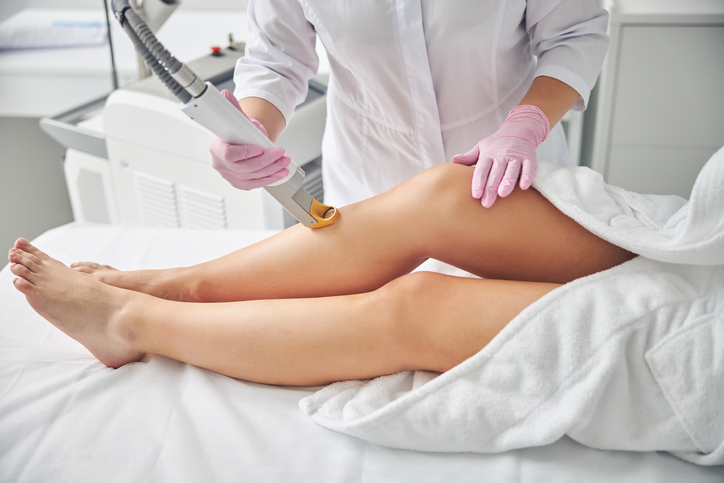
The evolution of intense pulsed light
Intense pulsed light (IPL) has become a staple in beauty salons and dermatology clinics. Learn how it works for hair removal, acne management, and more.
Dr Michael Rich is a specialist dermatologist who has been performing tumescent liposuction for over 30 years. Find out if Liposuction is suitable for you at ENRICH Clinic.
At ENRICH Clinic, we have a wide range of dermatological and cosmetic body treatments tailored to individual body and patient needs.
At ENRICH Clinic, our treatments are performed by our medical team consisting of doctors, nurses, and dermatologists and are tailored to each patient’s skin health needs.
ENRICH Clinic is committed to your skin health and well-being with a range of dermatological & cosmetic treatments tailored to the individual. Our treatments are performed by our medical team consisting of doctors, nurses, and dermatologists.
Skin health is essential for everyone. ENRICH Clinic has a wide range of technologies and dermatological solutions to help you achieve your skin care goals.
There is seemingly an unlimited number of essential things we absolutely must do for our health and beauty, but the fact is, we can’t do everything. Settling on a handful of key skincare tips to keep your skin beautiful can simplify your routines and help keep some pressure off while working on the other things in your life.
Finding the most effective beauty treatments that don’t take too much time or money is what you’re aiming for here. If even one or two of these skin care tips are the bare minimum, you’ll be better off.
Chemical peels are a cost-effective strategy to support beautiful skin without a significant investment of time or money. Drop into ENRICH Clinic in Melbourne every so often for an effective anti-ageing treatment that costs you less than $70, takes less than an hour and will hold your skin in good stead in more than one way over time.
Despite having a much nicer name, beauty parlour facials are not the same as chemical peels. While they might smell good and feel lovely, a regular beauty facial just doesn’t have any oomph in it and doesn’t last for more than the day of. A chemical peel, by comparison, will freshen your complexion while also stimulating collagen, so you get a skin perk up while also keeping skin looking younger for longer. It’s a win-win.
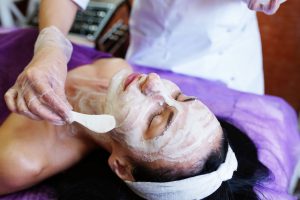
Your diet does matter when it comes to not only your skin’s health but your entire body. Not all diets – including so-called healthy diets – suit everybody, so work out what sort of food you feel the best on, and make an effort.
If you find that certain foods upset your belly (even veggies, fruits or other ‘healthy’ food), consider seeing a dietician, nutritionist or naturopath for advice on what could be going wrong and how to fix it. Don’t ignore niggling digestive problems, as they often have a flow-on effect on the rest of your body, including your skin, not to mention being uncomfortable. There are solutions.
Diet and digestion are more than just filling the hunger void. The quality of your food matters (McDonald’s vs homecooked), when you eat (going all day without eating, eating late at night, overeating, undereating), and how food digests and nutrients are absorbed.
Suppose you’re missing essential nutrients from your diet. In that case, it will show up someplace else, with the skin a common area for nutritional deficiencies, allergies and intolerances to rear their ugly head.
Low zinc, for example, can mean more breakouts that are slower to heal. Low protein will show up as flaky nails and brittle hair. Low iron can result in pale skin and sensitivity to the cold, not to mention feeling and looking tired. Dairy allergy or intolerance can show up as eczema or asthma flares. The list is endless, so if you’re having niggling symptoms, get them checked out.
Removing the oil and dirt from your face before you lay your head on the pillow is one of the best things you can do for your skin. Lying on the same greasy pillow night after night is not ideal.
Dirt and skin cells cling to grease without any trouble at all, so if you go to bed with a dirty face, you then transfer that mess to the pillow. Then the next night, you add to it, so after a week of the same pillowcase, you have yourself a filthy little petri dish that you’re applying like a heat pack to your face each night. Not a pleasant thought.
Wash your face with a gentle, effective cleanser, remove any makeup, and apply a good quality nighttime moisturiser. Wait for the moisturiser to dry completely before lying down on your pillow to avoid any unnecessary transfer of the moisturiser to the pillowcase. Wash your pillowcase once a week, even if you keep the same sheets.
Additionally, make sure to wash any cloth masks after you’ve finished wearing them for the occasion or day, and don’t double up two days in a row. Masks are a hotbed of germs and grease.
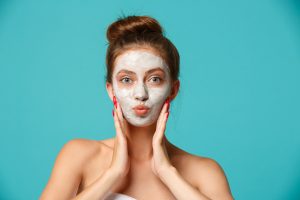
Wearing 50+ sunscreen is the best antiageing preventative we have. Do it. Religiously. Find a light non-greasy sunscreen and apply to your face, neck and hands before applying make-up.
It’s important to understand that while we are mildly obsessed with sunscreen, slathering your whole body in sunscreen and avoiding the sun means you’re more likely to be vitamin D deficient. Vitamin D deficiency is associated with many health issues, including poor immune function and frequent infections.
With a pandemic upon us, taking small precautions like having sufficient vitamin D for your proper immune function may mean taking advantage of limited sunshine on exposed skin but using sunscreen on your face, neck and decolletage.
To get enough vitamin D, the Australian Cancer Council says:
The best source of vitamin D is UVB radiation from the sun. UV radiation levels vary depending on location, time of year, time of day, cloud coverage and the environment.
For most people, adequate vitamin D levels are reached through regular incidental exposure to the sun. When the UV Index is 3 or above (such as during summer), most people maintain adequate vitamin D levels just by spending a few minutes outdoors on most days of the week.
In late autumn and winter in some southern parts of Australia, when the UV Index falls below 3, spend time outdoors in the middle of the day with some skin uncovered. Being physically active (e.g. gardening or going for a brisk walk) also helps boost vitamin D levels.
Add seeing your dermatologist into your regular medical care routine and get your skin checked regularly. This regular check might include having suspect moles looked at, having your skin assessed for opportunities for beautification, or treating a skin condition. As you age, your needs change and might include blood vessel treatments or lifts.
When you visit your dermatologist, we’re able to examine your skin, hair and nails and pick up any issues early. Getting used to regularly seeing your dermatologist is a healthy move, just like visiting the dentist for a checkup and clean once a year or getting your bloods done at your regular GP.
Want more information? Get in touch!
ENRICH Clinic
*With all surgeries or procedures, there are risks. Consult your physician (GP) before undertaking any surgical or cosmetic procedure. Please read the consent forms carefully and be informed about every aspect of your treatment. Surgeries such as liposuction have a mandatory seven-day cooling-off period to give patients adequate time to be sure of their surgery choice. Results may also vary from person to person due to many factors, including the individual’s genetics, diet and exercise. Before and after photos are only relevant to the patient in the photo and do not necessarily reflect the results other patients may experience. Ask questions. Our team of dermatologists, doctors and nurses are here to help you with any of your queries. This page is not advice and is intended to be informational only. We endeavour to keep all our information up to date; however, this site is intended as a guide and not a definitive information portal or in any way constitutes medical advice.
"*" indicates required fields
Combining Dr Rich’s dermatological skill with his knowledge of restorative skin regimes and treatments, the ENRICH range is formulated to help maintain and complement your skin. Our signature Vitamin C Day & Night creams are now joined by a Vit A, B,&C Serum and a B5 Hyaluronic Gel, both with hydration properties and much, much more.

Intense pulsed light (IPL) has become a staple in beauty salons and dermatology clinics. Learn how it works for hair removal, acne management, and more.
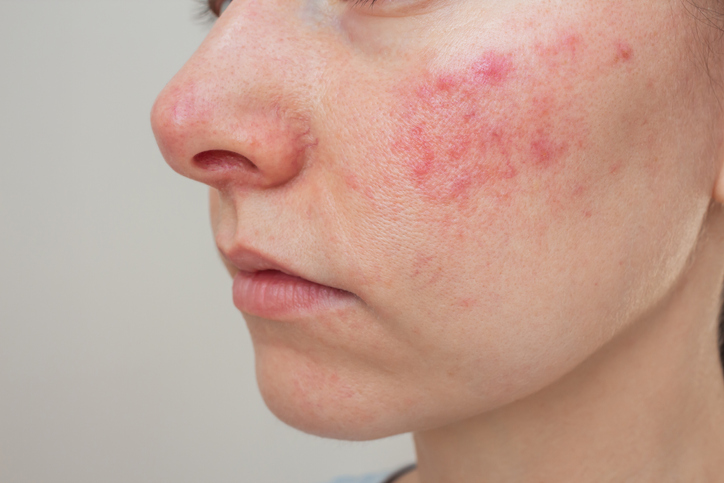
Worried you have eczema, dermatitis, or psoriasis? We talk symptoms, causes, triggers, and treatments for these common causes of itchy skin.
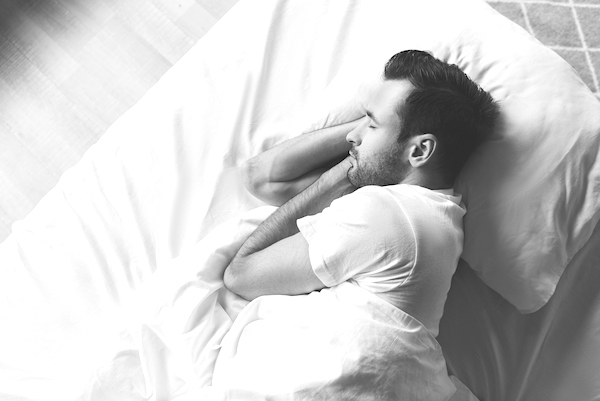
Research has shown that snoring can be reduced by up to 60% after two or three treatments with ENRICH Clinic’s high-tech target lasers designed to tighten the soft palate and stop snoring.
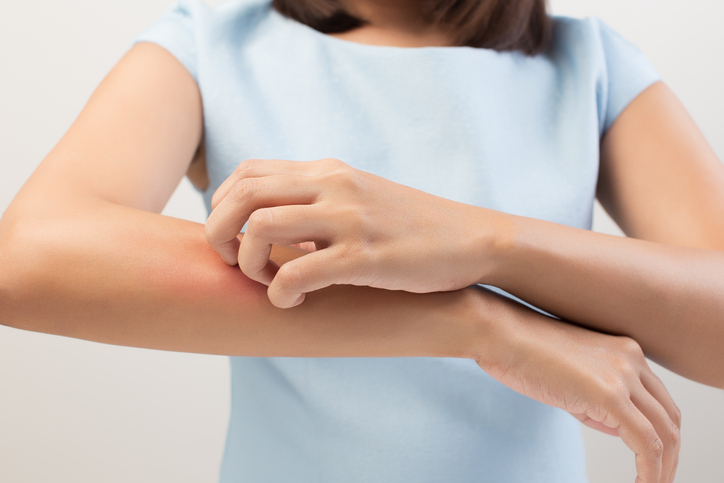
Suddenly dealing with itchy skin? We’ll talk about the common causes and how to find relief.
Subscribe to the ENRICH newsletter and receive latest news & updates from our team.
Enrich Clinic acknowledges the Traditional Lands of the Wurundjeri Woi Wurrung and Bunurong peoples of the East Kulin Nations on which we work and trade. We pay respect to their Elders past, present and emerging. We extend our acknowledgement and respect to the LGBTQIA+ community who we welcome and support. Read our full Acknowledgement Statement here
